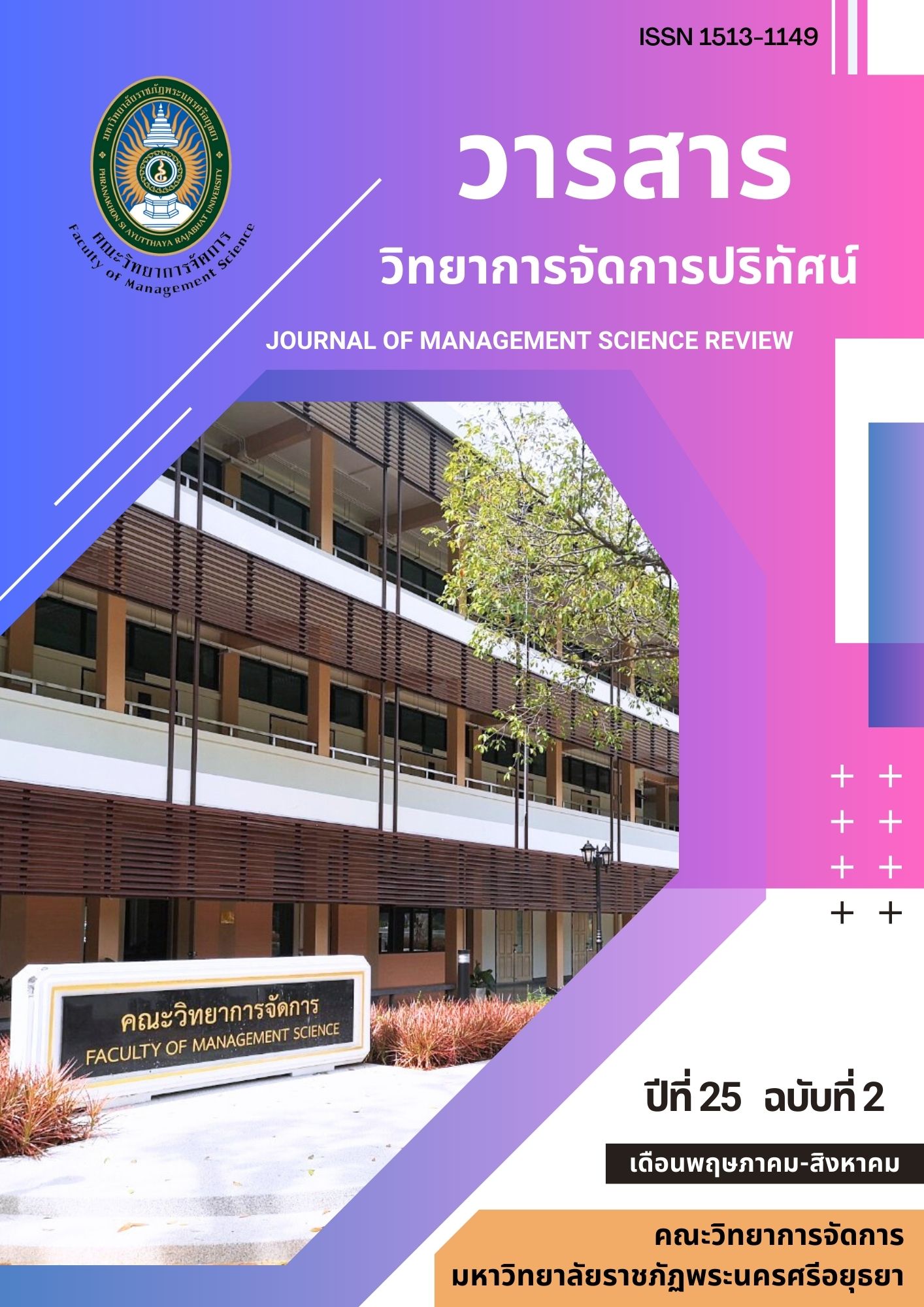Expectation and Satisfaction of Elderly Thai Tourists towards the Service Quality of 3 Star Hotels in Bangkok
Keywords:
Expectation and Satisfaction, Service Quality, Elderly Tourists, 3 Star Hotels, BangkokAbstract
This article aimed to 1) study the expectations and satisfaction of Thai elderly tourists who use 3-star hotels in Bangkok, and 2) compare the gap between demographic characteristics towards expectations and satisfaction with 3-star hotels in Bangkok towards the service quality of Thai elderly tourists who use 3-star hotels in Bangkok. The sample group used in the research was Thai elderly tourists aged 60 years and over who used services at 3-star hotels in Bangkok, totaling at least 400 people. The results were statistically analyzed by testing the hypothesis with a t-test and one-way ANOVA.
The research results from a total sample of 406 people found that most elderly Thai tourists who use 3-star hotels in Bangkok were females, aged between 60-64 years old with a bachelor's degree, and the average income per month was 30,001-45,000 baht. Most Thai elderly tourists had the highest level of expectation for service quality in 3 aspects: 1) service reliability ( = 4.31), 2) response to the needs of service recipients (
= 4.26), and 3) customer confidence (
= 4.25).
As for the satisfaction of the elderly, most Thai tourists are satisfied with the service quality at the highest level. Except for the aspect of understanding and perceiving the needs of service users at a high level ( = 4.17). The comparative results of the gap between demographic characteristics on expectations and satisfaction with the service quality of Thai elderly tourists who use 3-star hotels in Bangkok found that the overall expectations and satisfaction of the Thai elderly tourists classified by gender, age, education level, income, all 5 aspects had Sig. values less than the statistical significance level (0.05). Therefore, the main hypothesis (H0) was rejected, that is, Thai tourists of different genders, ages, education levels, and incomes had different levels of expectation and satisfaction with the service quality of 3-star hotels in Bangkok
References
กรมกิจการผู้สูงอายุ. (2563). เทรนด์ท่องเที่ยวที่มาแรงที่สุดในปี 2020. ค้นเมื่อ 5 มิถุนายน 2565, จาก http://www.dop.go.th.
ดุจดรินทร์ ดำขำ. (2564). ความคาดหวังและการรับรู้ของนักท่องเที่ยวผู้สูงอายุชาวไทยที่มีต่อคุณภาพการบริการของธุรกิจโรงแรม ในอำเภอเกาะสมุย จังหวัดสุราษฎร์ธานี. วิทยานิพนธ์ศิลปศาสตรมหาบัณฑิต สาขาวิชาการจัดการท่องเที่ยว, มหาวิทยาลัยธุรกิจบัณฑิตย์
ปุณพร บุญรังษี และประสพชัย พสุนนท์. (2561). ปัจจัยที่ส่งผลต่อการเลือกใช้บริการโรงแรมของนักท่องเที่ยวชาวไทยในเขตกรุงเทพมหานคร. วารสารวิชาการ มหาวิทยาลัยธนบุรี, 12(29),193-205.
เว็บไซต์ SALIKA Knowledge sharing space. (2563). แชร์ไอเดียพัฒนาการท่องเที่ยวให้พร้อมสำหรับ ‘นักท่องเที่ยว
สูงวัย’ หัวใจพร้อมลุย. ค้นเมื่อ 11 สิงหาคม 2566, จาก https://www.salika.co/2022/09/18/idea-for-aging-society-tourism/
เอลิษา แก้วสิงทอง. (2560). มาตรฐานโรงแรม 1-5 ดาว. ค้นเมื่อ 11 สิงหาคม 2566, จาก https://www.a-lisa.net/topic/2024
Kris Piroj. (2017). Service Quality. Retrieved September 11, 2023, from https://greedisgoods.com/author/admin/
Michael Beer. (1964). Human resource Management: a general manager’s Perpective: text and case. New York: Free Press
Cochran, W.G. (1977). Sampling Techniques. (3d ed.). New York: John Wiley and Sons. Parasuraman, A., Zeithaml, V.A. & Berry, L.L. (1990). Delivery quality service: balancing customer perceptions and expectations. New York: A Division of Macmilan.





